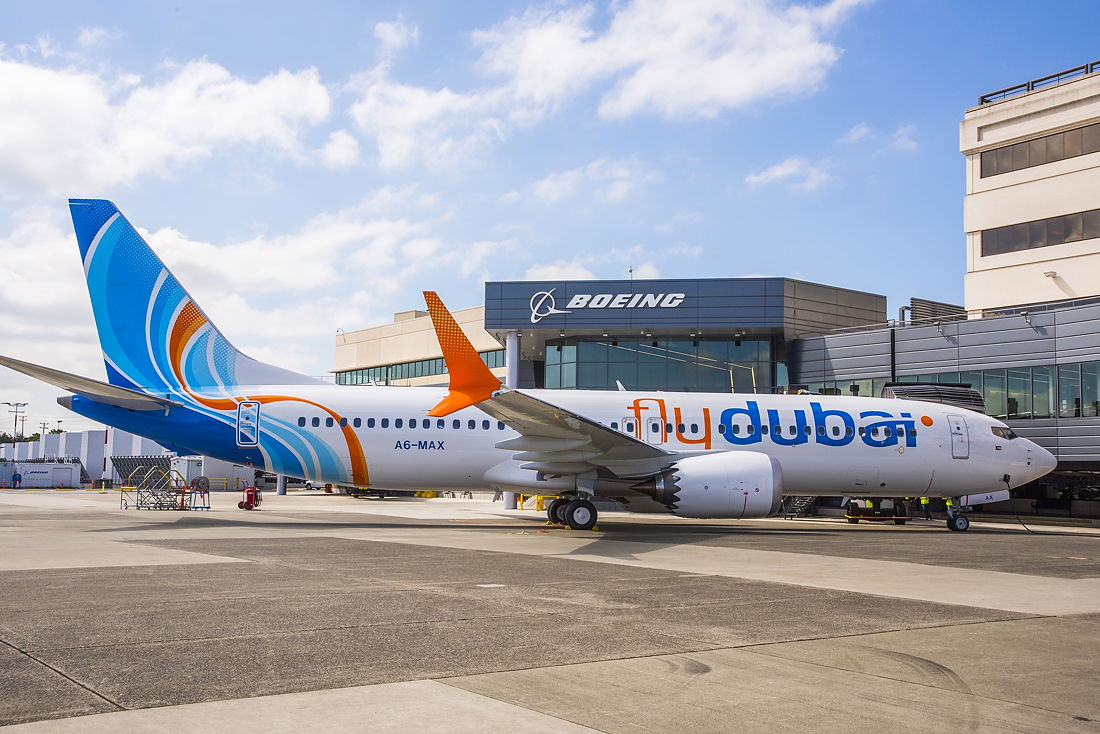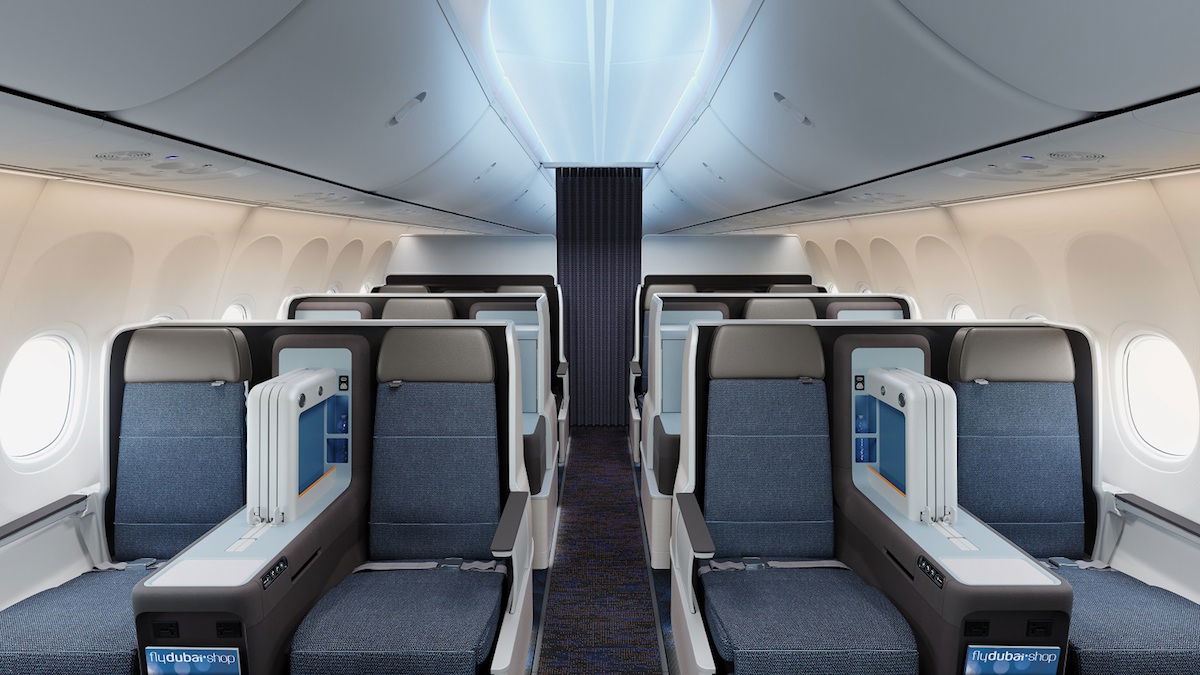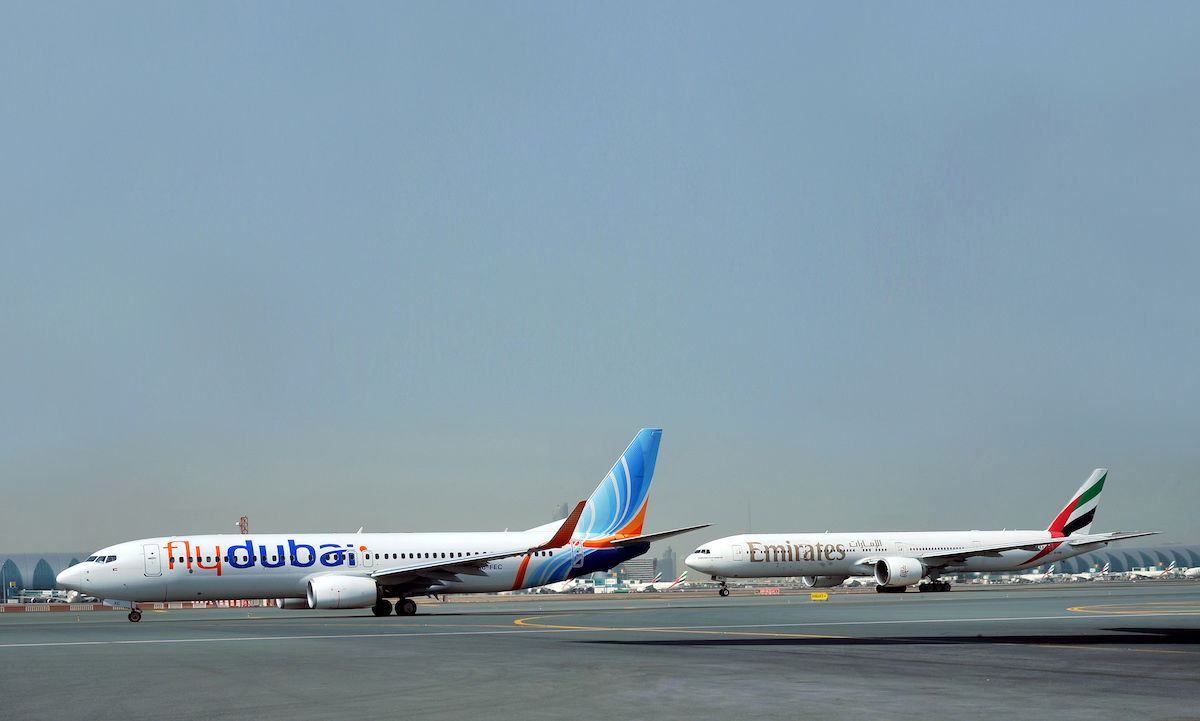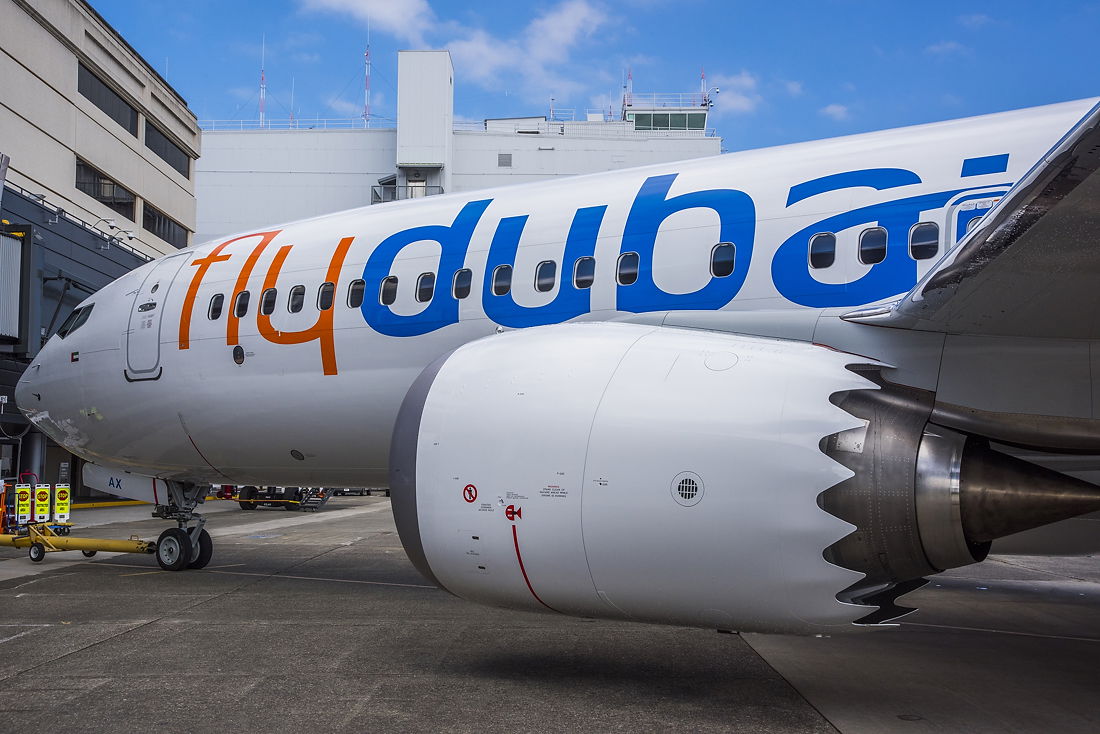Boeing has lost dozens of orders for the 737 MAX this week…
In this post:
FlyDubai cancels some 737 MAX orders
FlyDubai has this week announced that it has reached an agreement with Boeing to reduce the number of 737 MAX aircraft on order by 65. The government-owned Dubai-based airline exclusively operates a fleet of Boeing 737s.
FlyDubai claims that this decision follows a review of the company’s strategy in light of the coronavirus pandemic and the impact it has had on travel. The terms of the deal are unknown — we don’t know how much FlyDubai had to pay to cancel this order, and/or if this was part of compensation related to the grounding of the 737 MAX.
For some context:
- FlyDubai initially operated a fleet of 40 Boeing 737-800s
- FlyDubai ordered a total of 250 Boeing 737 MAXs, including 130 737 MAX 8s, 70 737 MAX 9s, and 50 737 MAX 10s; these planes were ordered in 2013 and 2017
- With FlyDubai reducing its order by 65 aircraft, the airline will eventually take delivery of a total of 185(ish) 737 MAXs
- FlyDubai has already taken delivery of 16 Boeing 737 MAX jets, though as you’d expect, entry into service for these planes has largely been delayed due to the 737 MAX being grounded; the airline plans to take delivery of an additional 11 737 MAXs before the end of 2021

On the surface the 737 MAX has been a fantastic plane for FlyDubai over previous generation 737s — it has improved range and fuel efficiency, and a fully flat business class product.

FlyDubai’s full potential still isn’t being realized
The pandemic has given a lot of airlines reality checks, and I think FlyDubai is no exception. Even with this order cancelation, FlyDubai is still poised to grow more than 400% bigger than it currently is. The plane currently has just over 50 planes, while it could eventually have over 200 planes.
The airline may retire some older generation aircraft over time (though not out of necessity in the near future, since the carrier’s average fleet age is only about five years), but the point is, the airline is still very much headed in the direction of growth.
Every decade or so, something comes along in the airline industry that causes airlines to take a step back and realize that growth won’t always be endless, and I suspect that’s exactly what happened here.
In the case of FlyDubai specifically, I still can’t make sense of the carrier’s strategy, and the lack of integration between Emirates and FlyDubai:
- Emirates and FlyDubai are both owned by the government of Dubai, yet are operated separately
- While the two airlines have a partnership, they’re not integrated in a seamless way that really leverages Emirates’ global brand recognition
- Because Emirates’ fleet consists exclusively of 777s and A380s, the carrier can’t fly to many airports, either for economical or operational reasons

I simply can’t wrap my head around why FlyDubai isn’t fully integrated into Emirates, just as Singapore Airlines is doing with SilkAir. This is a huge advantage that Qatar Airways has over Emirates, given that the former airline has a much more varied and flexible fleet.
There are lots of markets that can be served by FlyDubai and not Emirates, and markets where it could make sense to operate two or three FlyDubai flights, rather than one Emirates flight. Yet route planning isn’t integrated between the two airlines in a way that really optimizes schedules. And it also makes you wonder what the plan is for 200+ 737 MAXs.
Something tells me that the two airlines will eventually be fully integrated, but why it doesn’t happen sooner rather than later remains a mystery to me.

Bottom line
FlyDubai has reduced its Boeing 737 MAX order by 65 aircraft, though the airline still has well over 150 of these planes on order. FlyDubai was overly optimistic with its initial 737 MAX order, so I’m not surprised to see the order reduced.
I continue to think FlyDubai is in an odd spot. It’s technically a separate company from Emirates (despite similar ownership), and it just has an awkward route network that mostly fills Emirates’ gaps, but not always. It seems like the two airlines would be much better fully operating as one.
What do you make of FlyDubai’s 737 MAX order reduction?





Less money for Boeing to donate to Big Lie politicians.
https://www.washingtonpost.com/politics/2021/07/15/american-airlines-overturn-election-january-6/
A recent release from Emirates left me with the impression that Emirates wants to eventually merge but they want FlyDubai to get itself in order and show a history of what kind of airline they are on their own before bringing them completely into a merger.
I know they are attempting to have FlyDubai use their narrow metal to operate the short or low demand routes and feed traffic into Emirates for long haul...
A recent release from Emirates left me with the impression that Emirates wants to eventually merge but they want FlyDubai to get itself in order and show a history of what kind of airline they are on their own before bringing them completely into a merger.
I know they are attempting to have FlyDubai use their narrow metal to operate the short or low demand routes and feed traffic into Emirates for long haul routes. They are also coordinating schedules for connections and trying to avoid directly competing in any way.
The whole situation seems odd, but I would guess it is a cultural divide that I don't fully grasp.
In short, it seems Emirates really wants to merge but doesn't approve of how the FlyDubai business has been run so they won't move forward with a merger until they are confident in the people and the organization. Just my opinion.
I thought the whole partnership was strange.
I flew with them from Salzburg to Dubai. They offered a solid soft and hard product and I paid around $1,000. At that time, they used a different terminal in Dubai, so if you have a connecting flight, you better run girl.
What seems to be always forgotten by many people who never worked in this (or any) industry is that you can not just snap your fingers and "merge" companies, no matter how many advantages it gives you on paper.
Besides the obvious things like operation, cost structure, corporate culture, facilities, brand (flydubai not so great vs emirates very upscale) there are issues with regulatory compliance, suppliers, long term contracts etc. If you'd say today...
What seems to be always forgotten by many people who never worked in this (or any) industry is that you can not just snap your fingers and "merge" companies, no matter how many advantages it gives you on paper.
Besides the obvious things like operation, cost structure, corporate culture, facilities, brand (flydubai not so great vs emirates very upscale) there are issues with regulatory compliance, suppliers, long term contracts etc. If you'd say today we merge it would still take years to complete that. But you can't say today we merge because first you gotta take a few years to really come to a point where you know if it makes sense or not, which may or may not be already the process happening currently.
Not to mention IT systems. That can be a real nightmare for any merger. The vast majority of mergers actually end up contributing a net negative value (eg 1+1=1.5, and not 2.5)
This sort of clumsy inefficiency is what happens when airlines are owned by absurdly rich oil tycoons. It’s not a business to them. It’s a cute little hobby, and a way to burn off some of their billions.
Say what you will about BA or American or Spirit, but at least they’re run by people who understand the business.
Part of the problem between FlyDubai and Emirates is the terrible/lack of terminal coordination at DXB.
EK built its model around flying big airplanes and thought it only needed facilities for its own benefit to do that. Anything other than large widebodies weren't part of its plan.
As for the MAX cancellations, this is why Boeing has been able to offer white tail aircraft, largely to US airlines, for deep discounts and many US...
Part of the problem between FlyDubai and Emirates is the terrible/lack of terminal coordination at DXB.
EK built its model around flying big airplanes and thought it only needed facilities for its own benefit to do that. Anything other than large widebodies weren't part of its plan.
As for the MAX cancellations, this is why Boeing has been able to offer white tail aircraft, largely to US airlines, for deep discounts and many US airlines have taken advantage - and will as the US domestic market is in better shape than most of the rest of the world.
Delta simply chose not to add the MAX - likely because GE won't allow Delta to overhaul the engines on its own as Delta does with nearly every other aircraft in its fleet.
Now that most US airlines that could be interested in the MAX have bought white tails, Boeing will likely struggle to place yet another round of cancelled MAXs while trying to rebuild production.
Perhaps they want to keep the brands separate, either to keep Emirates as a more luxurious and long haul airline brand with big planes, or to keep more redundancies to support more jobs. Flydubai has a bit of a more low cost model to it, which helps to fill that part of the market. If they were integrated into Emirates, they would either have to become full service, or they would stay a lower cost...
Perhaps they want to keep the brands separate, either to keep Emirates as a more luxurious and long haul airline brand with big planes, or to keep more redundancies to support more jobs. Flydubai has a bit of a more low cost model to it, which helps to fill that part of the market. If they were integrated into Emirates, they would either have to become full service, or they would stay a lower cost operation. The former would cost more and potentially may not seem like a worthwhile investment for the market they have, and Dubai would lose out on the LLC market, with other foreign airlines coming in to that spot. Meanwhile, the latter would "hurt" the Emirates brand of being a full service airline (like Etihad with their new A320 cabins). By keeping them separate, Emirates is able to take the premium passengers, while Flydubai captures those who would be more likely to fly other airlines. I agree though that we should see more cooperation between the two airlines though.
Like used car prices so are "used" airplanes witness Delta's recent buy. This trend will continue for the immediate future. That coupled with Boeing's inability to get out of it's own way new plane orders will continue to decline then flatten out.
Isnt FlyDubai supposedly a low cost carrier? I don’t think SilkAir was a low cost carrier. It was more of a regional subsidiary for Singapore. I’d assume that’s why they’re not integrated / or why the government doesn’t want them integrated.